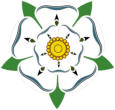Whiterose
Sheep Dogs
John Atkinson
+44 7850 710837
johnatkinson@whiterosesheepdogs.com



About Me
To train a sheep dog to work sheep is the most difficult form of dog
obedience there is. To have a dog running free on a group of sheep,
also running free, and to guide them as to where you want them to
move in a calm and orderly manner is an art that very few people can
achieve. Any person who takes up this challenge and becomes
successful to whatever degree should be very proud of themselves,
for you are a unique minority group.
I admire all forms of dog training and the people that participate in
them, from basic obedience to working trials (schutzhund) to agility,
to gundog work, to fly ball; but nothing comes near to the art of
working a good sheep dog on a flock of sheep. For I have participated
with success in many other forms of dog training since an early age,
due to my love of the dog.
From a young boy of five I would teach
my grandmother’s dog Rex many tricks
and exercises. We would perform in front
of the family at family gatherings when
all the children had to put on a show or
concert for the adults.
I started training sheep dogs forty years
ago; we used to call it breaking then. I
became tired of trying to control my
flock of pure Suffolk sheep with a bag of
feed; and as I was mad on dog training
anyway, for at the time I was competing in working trials
(shutzhund) with a German shepherd; I decided to buy a Border
Collie pup from good working stock and train it. I named her Beth
and she created my addiction to sheep
dog training. I won my first open trial
with her in 1982 under John
Templeton. A very proud moment for
me. But although I enjoy going trialling
my real pleasure comes from the
training of young dogs. Getting into
their heads and watching them
progress, and along with my
shepherding on the Escrick Park
Estate, near York in North Yorkshire,
this has been my vocation for many
years.
Training dogs to a high standard has
given me great pleasure in seeing them
progress to the pinnacle of competitive
trialling. Such as the 1988 Scottish
National Champion, Moss 138632, who
also won the brace at the International
Supreme in the same year, the 1999
Scottish National Champion, Whiterose
Kep 228380, who I also had the honour
of breeding, the 2002 International Supreme
Champion, Star 211076; and many other open champions both here
and abroad that have gone onto great success, and have become a
part of my business. For no matter how good the dog or bitch is, I will
sell it on, for it is the training that gives me most satisfaction.
Dogs can be purchased at various stages of training as well as fully
trained trial dogs. Dogs that I think will not make the grade for
competitive trialling can usually go as a working farm dog. These are
not necessary second grade dogs, but may just lack that bit of extra
finesse needed for competition. Dogs that do not make the grade,
either because of lack of ability or cannot take the training, I offer for
free as pets. Thankfully I don’t get many but poor temperament is
creeping in more today than in previous times. I am not a big breeder
but occasionally I do have pups from good sound stock for sale. I
usually go looking for good young dogs around 6 to 9 months of age.
Something that is showing and has a bit about it. There is nothing
better than taking a young dog to sheep for the first time and seeing
in minutes that it is special. I always look to the heavens and say,
“thank you God “. For you know you have the piece of silk to make
the silk purse. As they say, “you can’t make a silk purse out of a sow’s
ear”!!
When I breed I do study pedigrees, for there are lines that
consistently produce good dogs. However if a poor line is introduced,
then the litter is more of a gamble. If I see a good work dog or a dog
that is maybe in mediocre hands, rather than the top trials handler,
but I believe it has a special quality, I would use such a dog on my
bitch. We are all trying to find the perfect dog, but just as in people,
no one is perfect. (Not even you!!!) We all have our strengths and
weaknesses. But some dogs come very near to it. This is not only
because it is a good dog, but also it has had hours of work on it to
correct any minor faults. This is usually done by the handlers that are
winning; who we call “Top Handlers”. They have to be admired for
they are the people who set the standard for which all other
competitors have to aim for if they want to be successful.



Whiterose
Sheep Dogs
John Atkinson
+44 7850 710837
johnatkinson@whiterosesheepdogs.com












